The hard work of digging wells in the hot season
(Baonghean.vn) - During these hot days, people who dig wells in the province have endless work to do. Although it is hard, difficult, and potentially risky, the underground profession also brings in extra income.
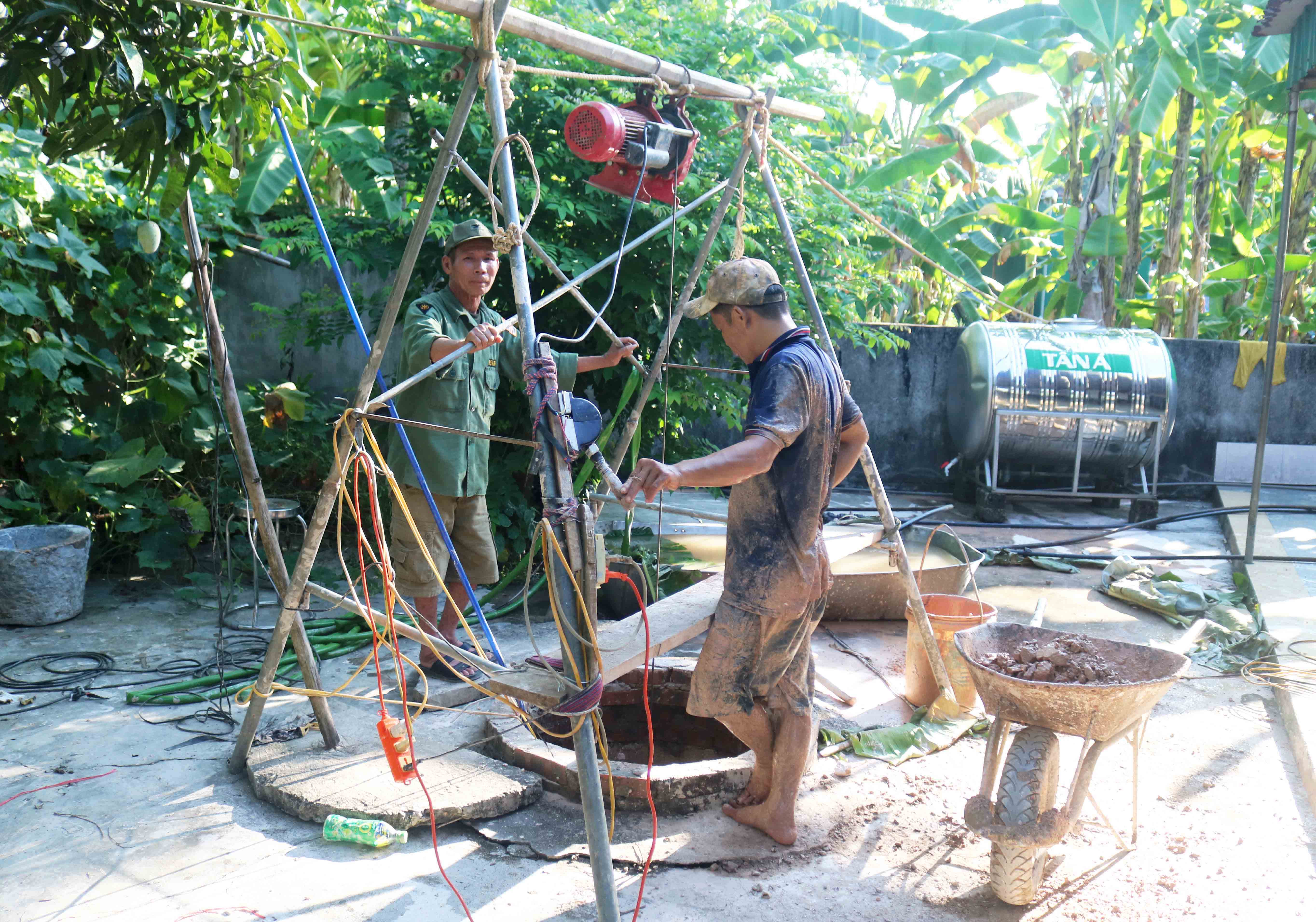 |
| Nowadays, although there is tap water and well water, open wells are still an important source of clean water, so the well digging profession is still maintained. However, the number of people doing the profession is not as large as before, each commune usually has a few groups of workers operating year-round or seasonally. Photo: Huy Thu |
 |
Well diggers in Thanh Chuong, Do Luong, Anh Son districts... usually work in groups of 3-4 people, including 2 main workers and 1-2 assistants. During this heat wave, well diggers in the province are busy, digging new wells and cleaning old ones. Photo: Huy Thu |
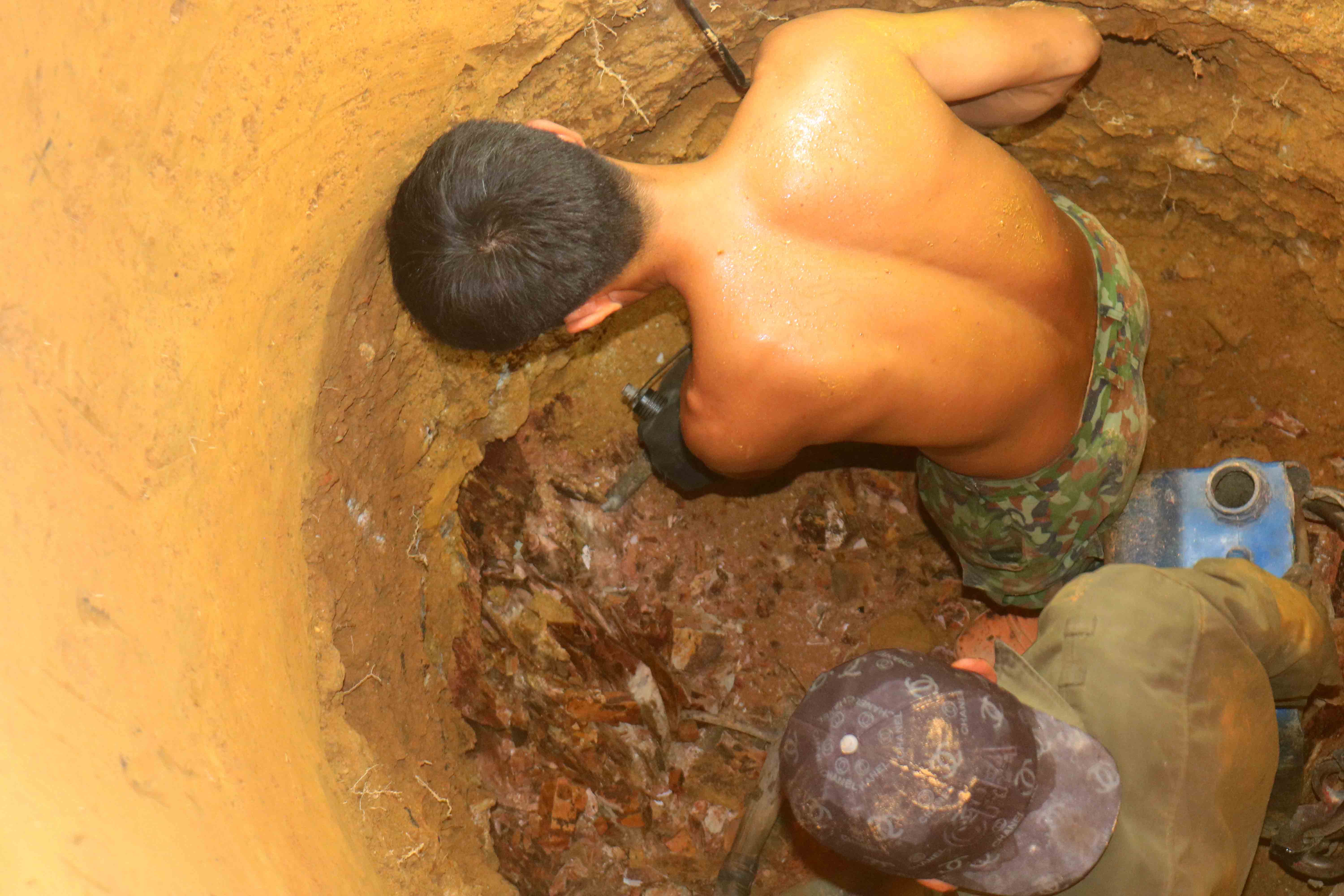 |
| Before digging a well, the workers must carefully study the terrain and geology to choose the appropriate digging method. The tools used for digging wells in the past were mainly hoes, shovels, crowbars, buckets, pulleys, etc. Now, well diggers have less trouble, thanks to the addition of earth drills, winches, electric ventilation fans, etc. Photo: Huy Thu |
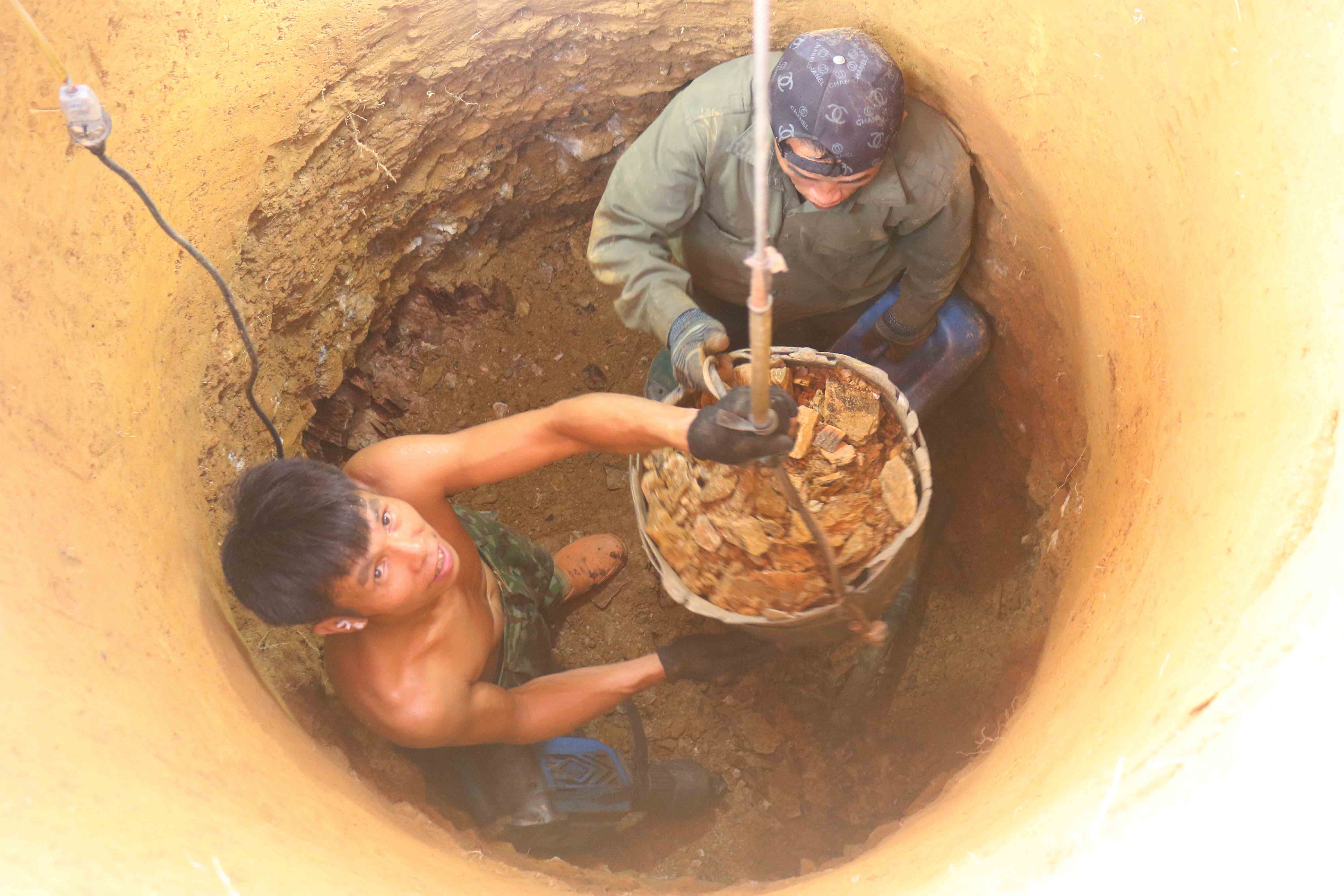 |
Mr. Nguyen Van Dai (45 years old), from Thanh Khe commune (Thanh Chuong) shared: This summer is extremely hot, people in many places lack water for daily use, the need to dig wells has increased, before one well is finished, someone calls to dig another. Since the beginning of March until now, his well digging team of 4 people has dug 16 wells, both old and new, the work is continuous. Photo: Huy Thu |
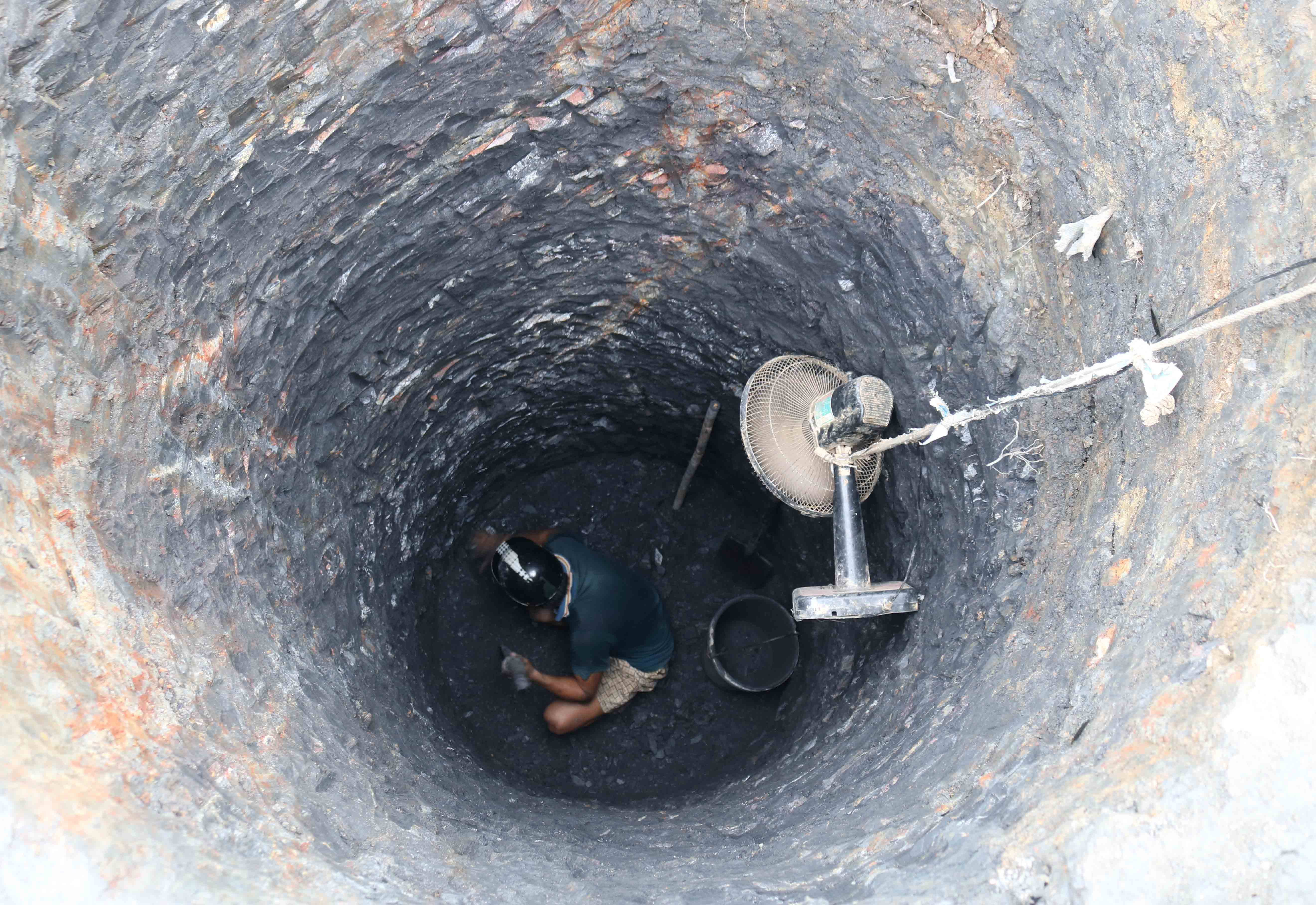 |
| Well diggers working at the bottom of wells are at risk of many dangers such as landslides, well collapses, falling tools, etc. Digging wells in mountainous areas is difficult but quite safe, without fear of landslides. Digging wells in plains or along rivers where the soil is soft and easy to dig, but quite dangerous. Photo: Huy Thu |
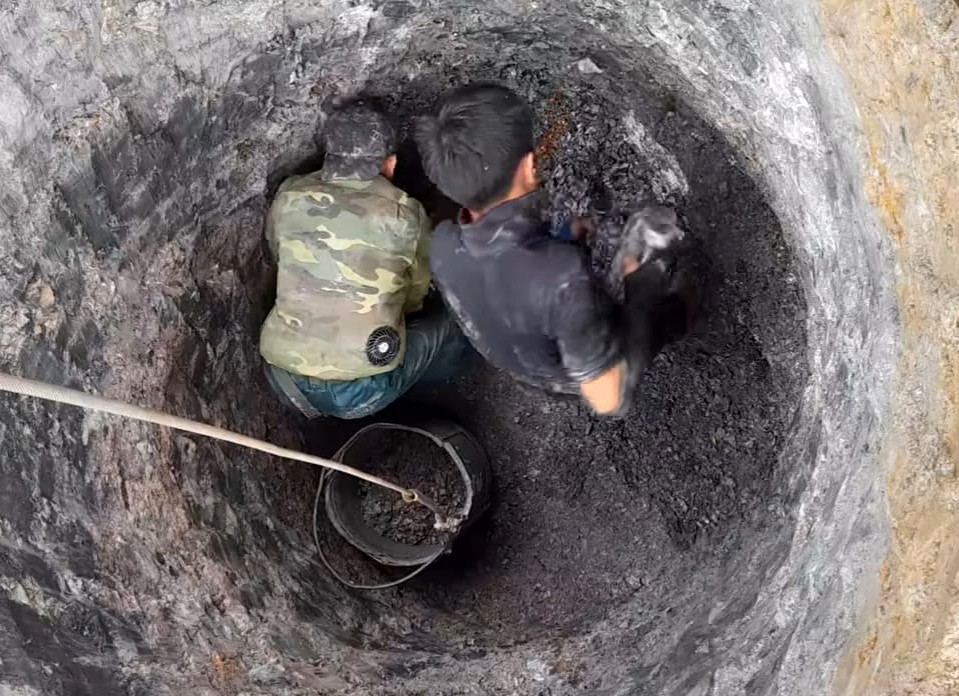 |
| According to those in the profession, depending on the area, soil quality, size, and depth of the well, the digging team will dig quickly or slowly. The harder the soil, the smaller the well area, the more difficult it is to dig. In the plains, the soft soil, a team of 4 people can dig 4-5m deep/day. On the contrary, in the mountainous areas, the soil is hard, with lots of gravel and rocks, making it difficult to dig. Every day, no matter how hard they try, they can only dig 1-2m, and some wells can only be dug more than half a meter. Photo: Huy Thu |
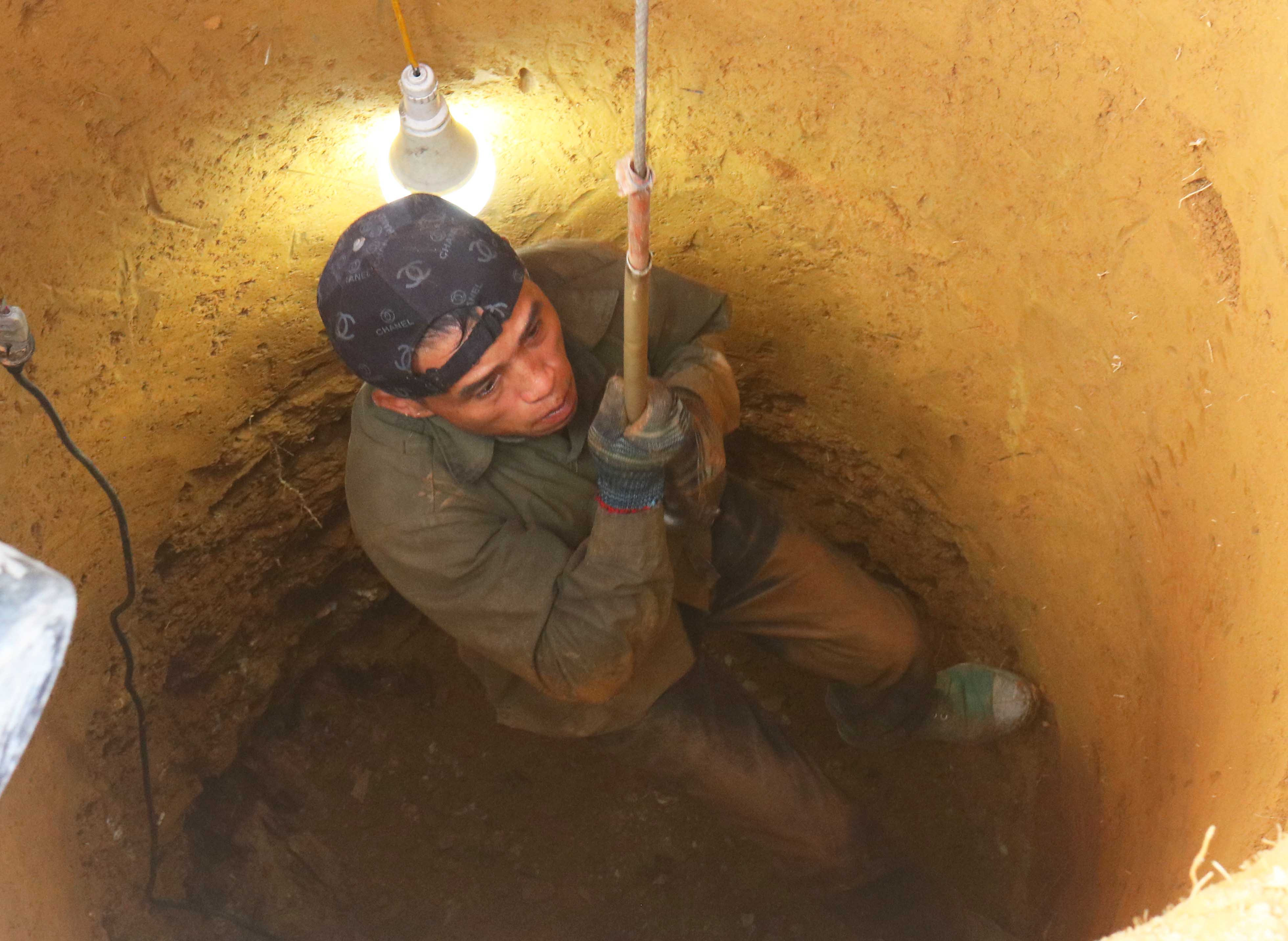 |
| This summer, frequent power outages have also caused difficulties for well diggers. On days when the power goes out, they have to take time off work because their drills, winches, etc. cannot operate. If they go to work and sit in the well and suddenly the power goes out, it is very frustrating. Photo: Huy Thu |
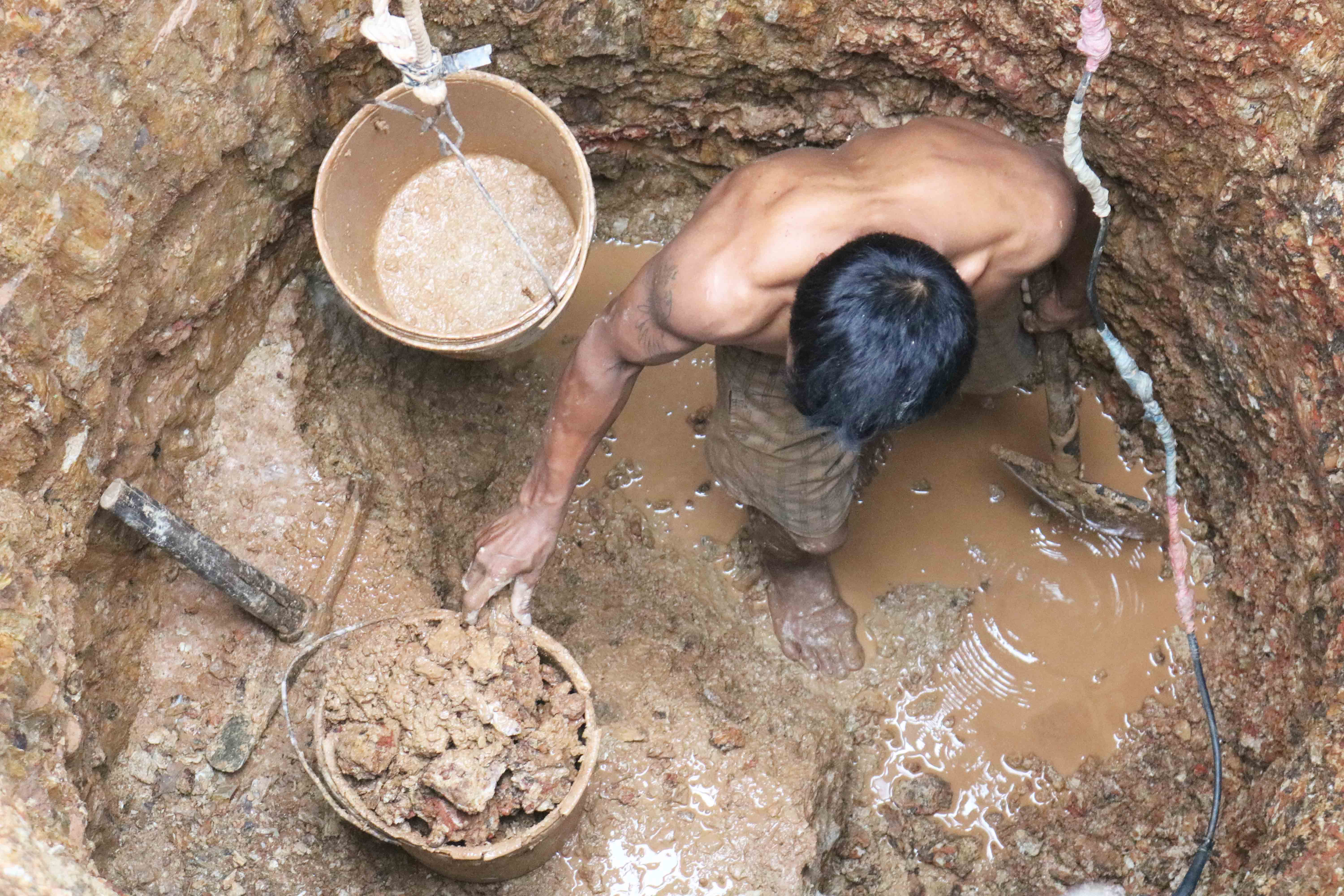 |
| If digging a well in the rain or encountering a strong geyser, workers often have to struggle with the muddy soil, sometimes digging and scooping water at the same time, which takes a lot of effort. Photo: Huy Thu |
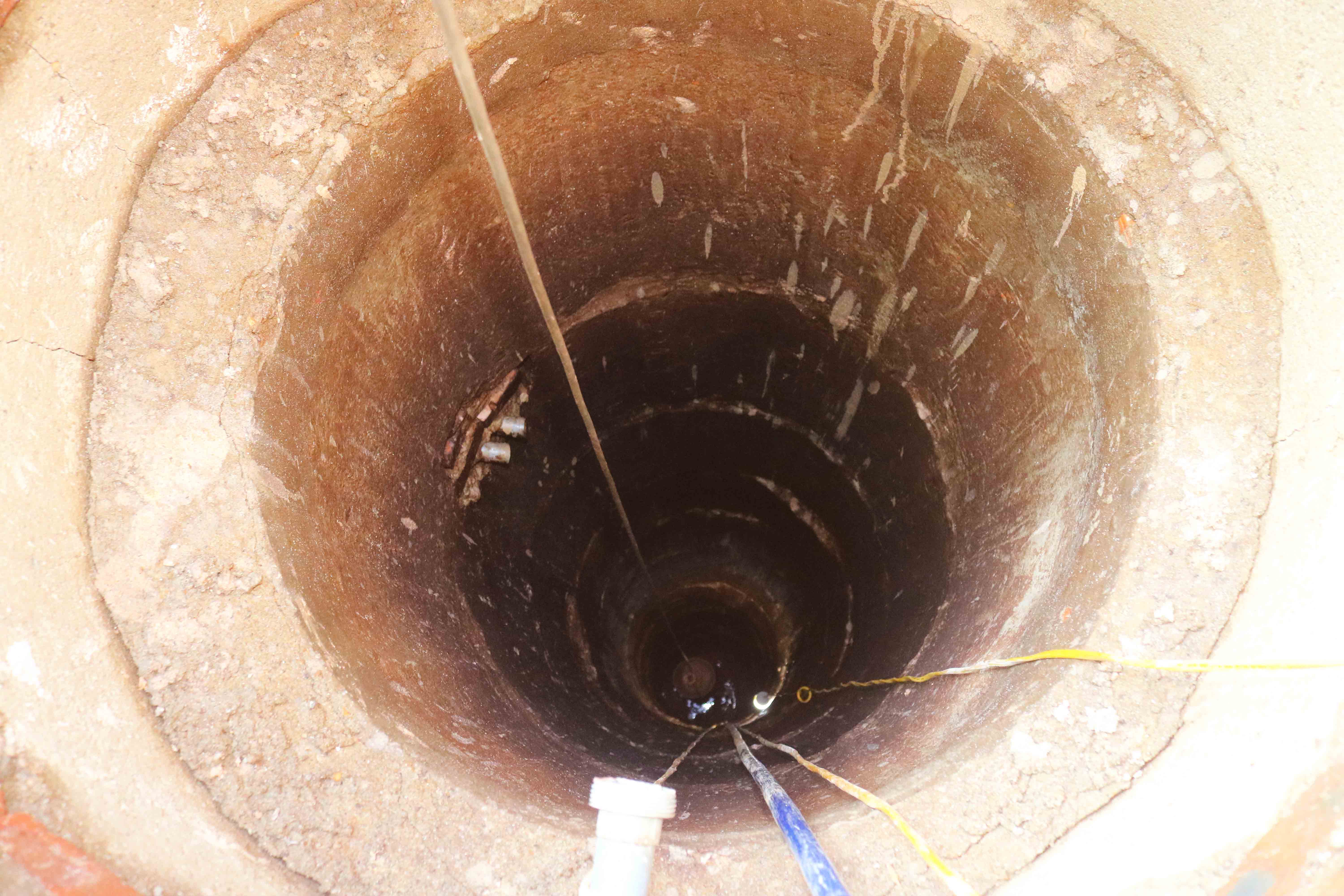 |
| For old wells that need to be dug further, after pumping water, workers must consider the safety of the well and check for toxic gas in the well. This is to avoid suffocation from toxic gas or subsidence around the well, causing the well to collapse as has happened in some places. Photo: Huy Thu |
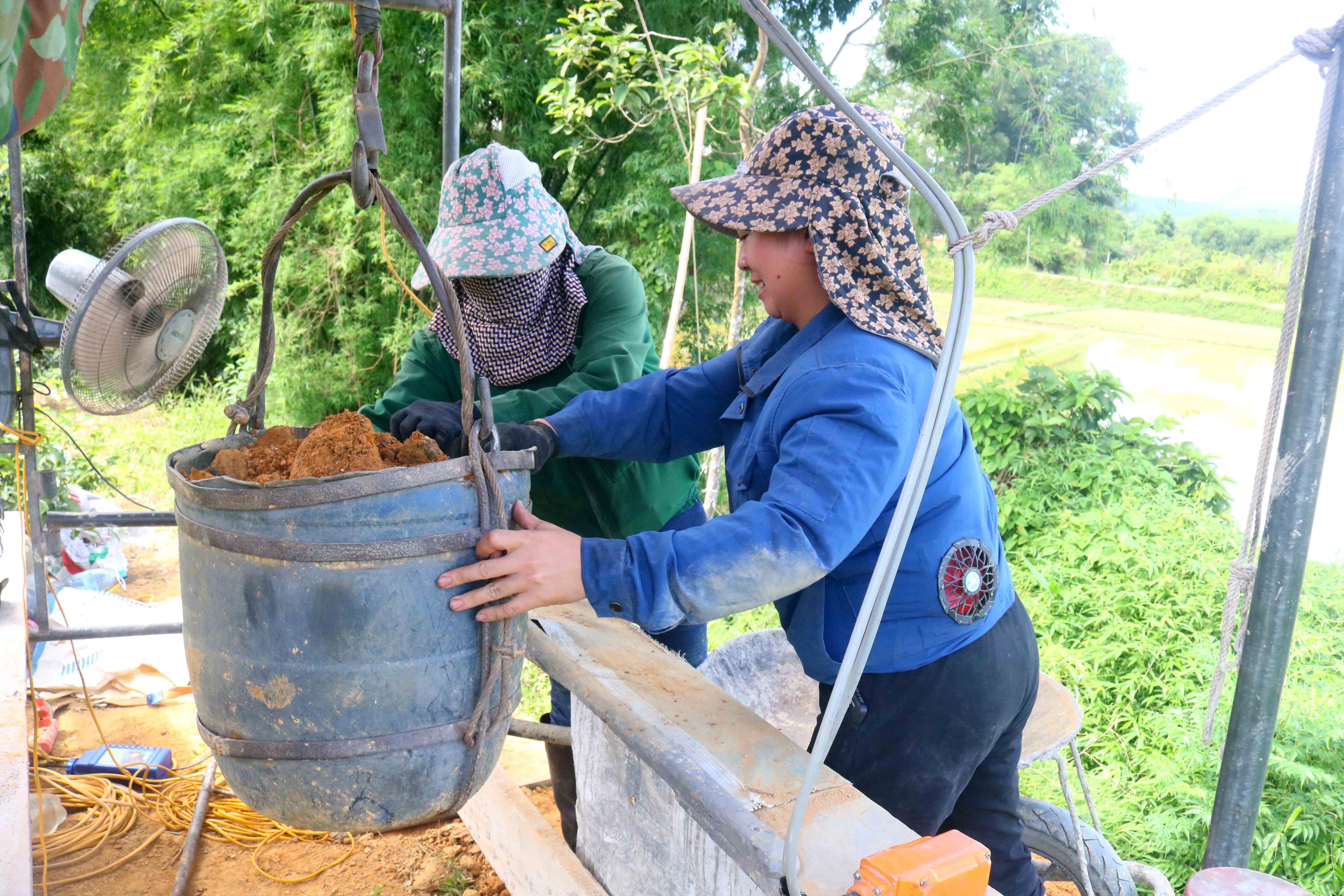 |
The wages for digging wells depend on the area, depth, and difficulty of the well. Wells with a diameter of 1.2m dug in the delta region currently cost600,000 - 800,000VND/meter deep. In mountainous areas, digging is difficult, the labor cost is about 1 million VND/meter deep. For old wells, digging more costs from 1.5 - 2.5 million VND/meter. In hot weather, continuous work, well diggers also have extra income. Photo: Huy Thu |
| Clip: Huy Thu |


